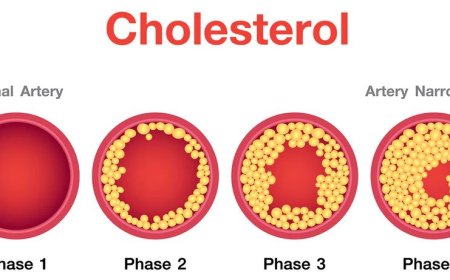Heartburn

Introduction:
Heartburn, also known as acid indigestion, is a common digestive condition that affects many people in India. It is characterized by a burning sensation in the chest, often accompanied by a sour or acidic taste in the mouth. Although it is not a severe medical condition, recurring heartburn can be uncomfortable and distressing. In this article, we will explore what heartburn is, its signs and symptoms, classification, causes and triggers, risk factors, types, diagnostic tests, treatments, and prevention techniques, all explained in simple language for 10-year-old children to easily understand.
Signs and Symptoms:
The primary symptom of heartburn is a burning sensation in the chest, usually felt behind the breastbone. Children might describe it as feeling like a small fire in their chest. Other common symptoms include:
- Sour or bitter taste in the mouth
- Regurgitation of stomach contents into the throat
- Difficulty swallowing
- Coughing or wheezing
- Discomfort or pain that worsens when lying down or bending over
What is Heartburn?
Heartburn occurs when stomach acid flows back into the esophagus, the tube that connects the mouth to the stomach. This happens because the lower esophageal sphincter (LES), a muscular ring at the bottom of the esophagus, doesn't close tightly enough, allowing stomach acid to escape.
How is Heartburn Classified?
Heartburn is classified based on its frequency and severity:
- Occasional Heartburn: Occurs less than twice a week and can often be managed with lifestyle changes.
- Frequent Heartburn: Occurs more than twice a week, indicating a more chronic condition that may require medical intervention.
Causes and Triggers:
Several factors can cause or trigger heartburn, including:
- Spicy and fatty foods: Such as Indian street foods, deep-fried snacks, and curries.
- Citrus fruits and juices: Like oranges and lemons, which are acidic.
- Carbonated beverages: Such as sodas, which can increase stomach pressure.
- Overeating: Large meals can put pressure on the LES.
- Obesity: Excess weight can increase the risk of heartburn.
- Smoking: It can weaken the LES and increase stomach acid production.
Risk Factors with Examples:
Certain factors can increase the likelihood of experiencing heartburn:
- Age: As people get older, the risk of heartburn may increase. For example, Grandma might feel heartburn more often than her grandchildren.
- Pregnancy: The hormonal changes during pregnancy can relax the LES, leading to heartburn. Auntie might have experienced heartburn when she was pregnant with her baby.
- Hiatal Hernia: This is a condition where a portion of the stomach bulges into the chest cavity, making heartburn more likely. Uncle might have heartburn due to this condition.
Types of Heartburn:
There aren't different "types" of heartburn per se, but it can manifest in varying degrees of severity, leading to different experiences for each person.
- Mild Heartburn: Occasional discomfort that goes away with lifestyle changes.
- Severe Heartburn: Frequent and intense pain that requires medical attention.
Diagnostic Tests and Treatments:
-
Medical History and Physical Examination: Doctors will ask questions about symptoms and perform a physical exam to evaluate the extent of heartburn.
-
Endoscopy: A thin, flexible tube with a camera is inserted into the esophagus to examine it and check for any abnormalities.
-
pH Monitoring: This measures the level of acidity in the esophagus over a 24-hour period.
-
Esophageal Manometry: This measures the pressure and movement in the esophagus.
Treatments:
-
Lifestyle Changes: This includes eating smaller meals, avoiding trigger foods, and not lying down after meals.
-
Medications: Over-the-counter antacids can neutralize stomach acid, while proton pump inhibitors (PPIs) can reduce acid production.
Complications and Prevention Techniques:
If left untreated, chronic heartburn can lead to complications like:
- Esophagitis: Inflammation of the esophagus lining.
- Strictures: Narrowing of the esophagus due to scarring.
- Barrett's Esophagus: A condition that may increase the risk of esophageal cancer.
Prevention techniques include maintaining a healthy weight, avoiding trigger foods, and eating smaller, more frequent meals.
Heartburn is a common issue in India, but with proper understanding and lifestyle adjustments, it can be managed effectively. By avoiding trigger foods, maintaining a healthy lifestyle, and seeking medical attention when needed, individuals can keep the fiery beast of heartburn at bay, ensuring a comfortable and enjoyable life.
What's Your Reaction?


























































